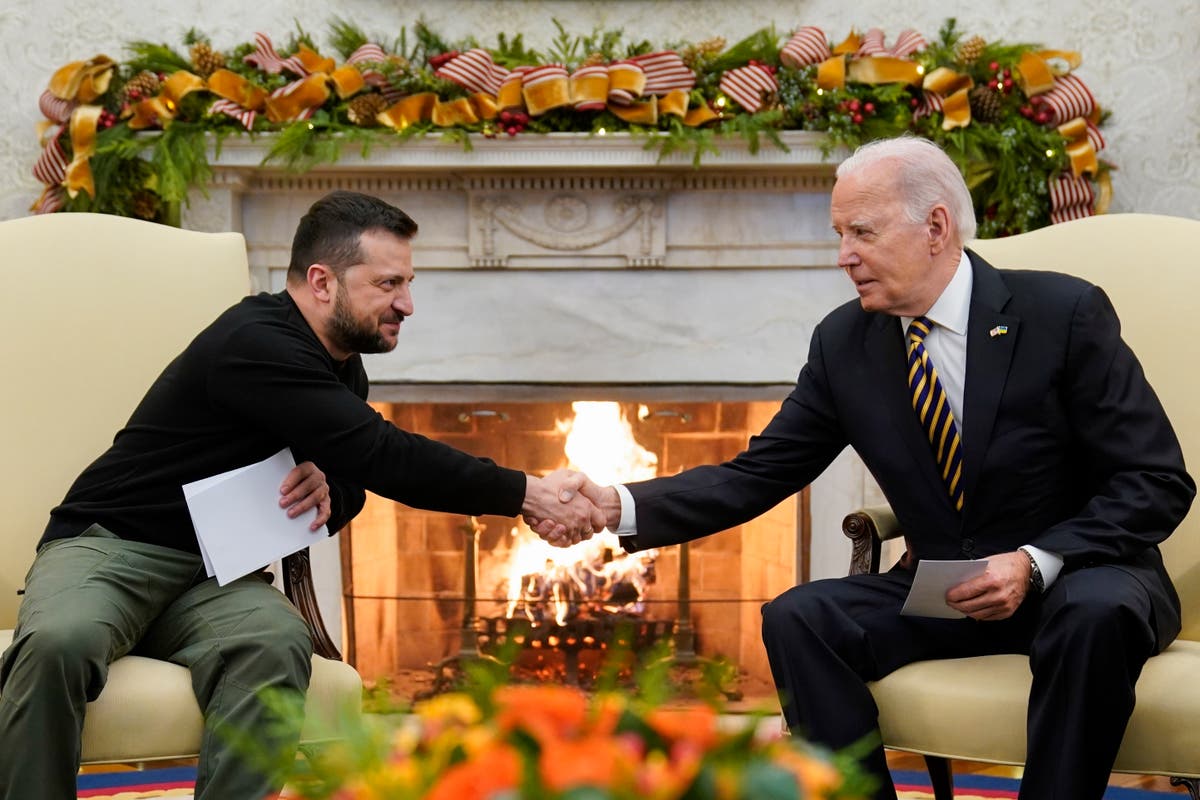White House has urged congressional Republicans without success to drop resistance to Ukraine funding over immigration dispute
President Joe Biden on Friday signed an executive order expanding US sanctions authority against Russia and aimed at further isolating Russia’s military and defence sector from the global economy.
The order will provide the Treasury Department with authority to issue so-called “secondary sanctions”, which will target banks and other financial institutions that facilitate the business of companies involved in the importing of technology required for the assembly of arms and munitions for Russia’s military. Previously, such secondary sanctions authority had been primarily used against companies working with corporate and other interests tied to Iran and North Korea, and has been credited with the effectiveness of isolating those countries from the US financial system.
Friday’s action could have a significant effect in the Biden administration’s efforts to cut off Russia’s military and private interests connected to it from the US dollar. It will, however, require the Treasury Department to strategically target those sanctions — and for them to be maintained under whichever administration takes the White House in 2025. Several candidates for the Republican nomination including most notably Vivek Ramaswamy have embraced a skepticism of the US’s strategic alliance with Ukraine and oppose sending further aid to the Ukrainian defence effort.



This is the best summary I could come up with:
The order will provide the Treasury Department with authority to issue so-called “secondary sanctions”, which will target banks and other financial institutions that facilitate the business of companies involved in the importing of technology required for the assembly of arms and munitions for Russia’s military.
Previously, such secondary sanctions authority had been primarily used against companies working with corporate and other interests tied to Iran and North Korea, and has been credited with the effectiveness of isolating those countries from the US financial system.
Several candidates for the Republican nomination including most notably Vivek Ramaswamy have embraced a skepticism of the US’s strategic alliance with Ukraine and oppose sending further aid to the Ukrainian defence effort.
White House officials at the press secretary’s daily briefing as well as on a background call Thursday also expressed the urgency for Congress to pass legislation authorising further financial support for Ukraine, explaining that money was running out and that the US risked seeing the Ukrainian military’s gains against Russia lost in the months ahead as a result.
Though the effectiveness of sanctions against Russia’s economy remains up for debate, the White House insisted on Thursday that the Biden administration’s efforts to punish the Russian defence sector were irrefutably working.
This week’s announcement followed an expansion of existing sanctions authority to more than 150 third-country private entities connected to the Russian arms trade earlier in December.
The original article contains 445 words, the summary contains 232 words. Saved 48%. I’m a bot and I’m open source!